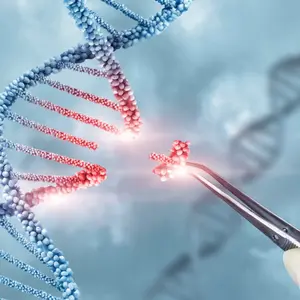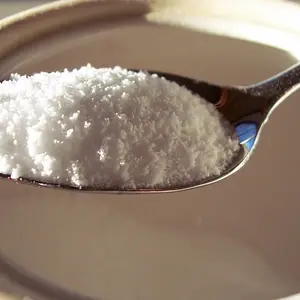

Emerging

Emerging
Aspartame: A Possible Carcinogen?
Aspartame is one of the world’s most popular artificial sweeteners, found in many favorite sugar-free alternatives like Diet Coke, Trident sugar-free gum, and Crystal Light. Yet, the World Health Organization's cancer research arm, The International Agency for Research on Cancer (IARC), just classified aspartame as a potential carcinogen.
Aspartame has a long history of use in the United States. In 1974, aspartame was initially approved as a tabletop sweetener by the Food and Drug Administration, and by 1996 it was approved as a general sweetener. However, over the past few years various studies have connected aspartame to cancer. A 2022 study published in PLOS Medicine found that consuming high amounts of aspartame is associated with an increased risk of developing breast and obesity-related cancer. More recently, the European Ramazzini Foundation (ERF) in Italy identified an increase in leukemias, lymphomas, and malignant tumors in rats after lifetime exposure to aspartame. Other human observational studies, although they cannot determine causality, suggest a potential correlation between aspartame and increased risk of hematopoietic cancers and brain tumors. Aspartame may also have DNA-damaging effects; when aspartame is broken down in the body it releases the metabolite methanol, which can be converted into the carcinogen formaldehyde.
Out of the four categories of possible carcinogens, aspartame has been classified by the ISRC into Group 2B, which is defined as having limited evidence of carcinogenicity in humans and insufficient evidence in animals. It is also worth noting that the IARC’s categories only refer to the strength of the evidence that a substance may cause cancer, not the degree of risk. Risk takes into account the exposure to and the amount of the substance. The acceptable daily intake (40 milligrams per kilogram of body weight) has not been changed.
Overall, research on the carcinogenicity of aspartame tends to be conflicting. Many industry bodies are criticizing the potential categorization as misleading and confusing. Additionally, many demographic groups, such as individuals with obesity and diabetes, rely on these artificially sweetened goods as one of the few sugar alternatives to maintain their health. Nevertheless, the associations between aspartame and cancer-causing properties certainly call for further investigation.
REFERENCES
Gorvett, Z. (2023, June 30). Aspartame: what else is ‘possibly carcinogenic’? https://www.bbc.com/future/article/20230630-aspartame-what-else-is-possibly-cancerous
Johnson, A. (2023, June 30). What to know about aspartame: the sugar substitute in Diet Coke that will reportedly be declared a possible cancer risk by WHO. https://www.forbes.com/sites/ariannajohnson/2023/06/30/what-to-know-about-aspartame-the-sugar-substitute-in-diet-coke-that-will-reportedly-be-declared-a-possible-cancer-risk-by-who
Kuhnle, G. (2023, June 30). Aspartame: popular sweetener could be classified as a possible carcinogen by WHO — but there’s no cause for panic. https://theconversation.com/aspartame-popular-sweetener-could-be-classified-as-a-possible-carcinogen-by-who-but-theres-no-cause-for-panic-208895
Perlmutter, D. (2023, June 30). Aspartame – real concerns. https://www.drperlmutter.com/aspartame-real-concerns/


 By
By







